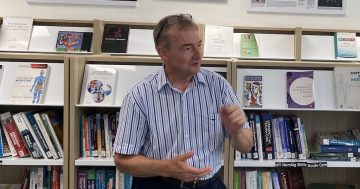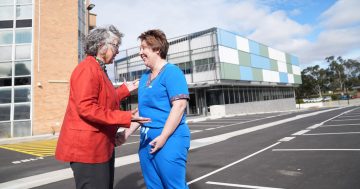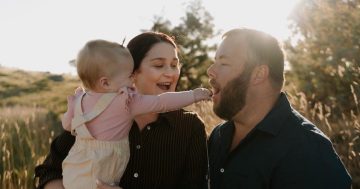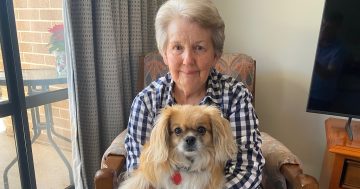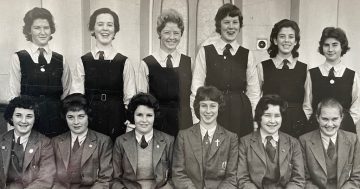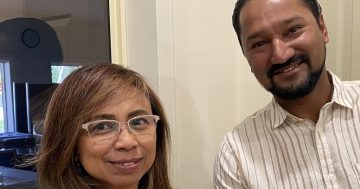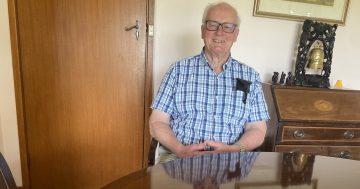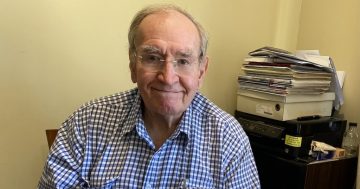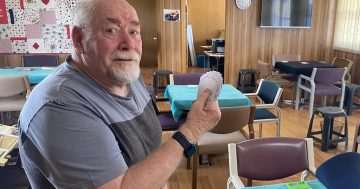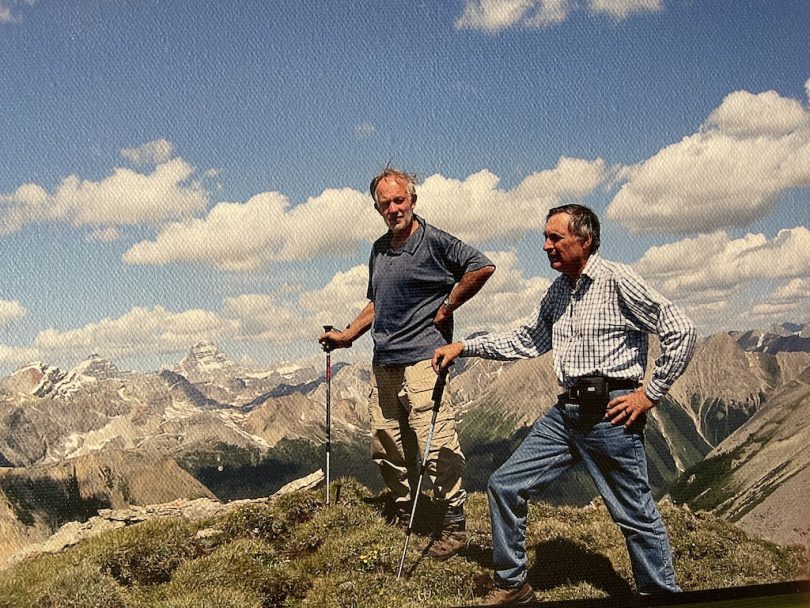
Dr Jack Micklethwaite and Dr Tom Lyttle in the Canadian Alps, around 2006. Photo: Supplied.
In the late 1970s, critically ill babies from Goulburn Base Hospital were rushed to specialist neonatal units in Sydney. Police at every traffic light between Goulburn and Westmead Hospital waved the ambulance, with siren wailing, through because every second counted.
Over time, Sydney’s specialists noticed babies from Goulburn arriving in better health than babies transferred shorter distances from suburban hospitals. This led them to Goulburn anaesthetist Dr Jack Micklethwaite, who travelled with the babies ventilating them – virtually breathing for them – en route.
“It was something I was used to, we do this every day in anaesthetics,” says Jack, reflecting on those times.
“I told them they needed to get a helicopter service because this was what they were doing in the United States.
“I spoke to Associate Professor John Overton, who was in charge of anaesthetics and resuscitation in intensive care at Westmead, and said we need a helicopter, which he organised to transport these babies.”
The son of a Goulburn house painter, Jack had already made his mark in the medical profession before returning to his hometown in 1973 to work at Goulburn Base Hospital. After studying and working in Sydney, he worked at the Royal Brisbane Hospital where he won the Renton Prize for the top mark in Australia and South East Asia for his college exams.
Allowed to practice wherever he liked in Australia, he chose two Melbourne hospitals, continuing his studies in paediatrics and epidurals for women in labour. Then he returned to Brisbane for three years, and introduced ventilatory practices for premature babies, which dramatically lowered mortality rates from 80 per cent to 20 per cent.
“I then decided to come back to my hometown to care for sick babies with [obstetrician] Dr Noel Docker, and transport them to Sydney,” says Jack.
Noel was a big bloke.
“My grandfather had a policeman’s bike which was bigger than the average bike,” says Jack. “So I gave that to Noel. He used to park it outside the fence, and of course someone flogged it. But he went down to the local pawn shop and bought it back.”
Throughout Jack’s career he has counted his good fortune returning to Goulburn. He came back with his wife, Estelle, a teacher from Queensland he met through mutual friends while at St George Hospital in Sydney. They married in 1965.
Back in Goulburn, working alongside Noel and surgeons Dr Tom Lyttle and Dr John Crawford, and living only 10 minutes from the hospital, Jack loved being close enough to visit patients whenever they needed him.
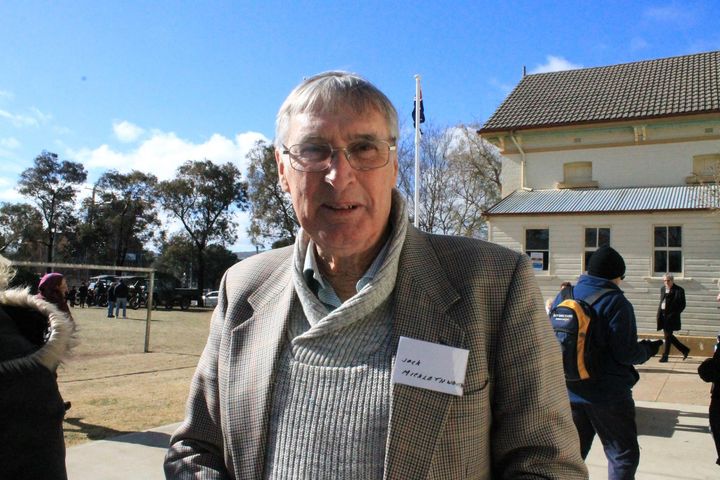
Dr Jack Micklethwaite had a long and distinguished career in medicine. Photo: Supplied.
Jack says being an anaesthetist and specialist in intensive care and neonatal was rewarding work.
“It was hard work,” he says. “Well, it wasn’t hard, I was doing something I enjoyed. But there were times you would be up all night with no-one to relieve you the next day.
Hospital staff recall Jack singing aloud and being an exceptional whistler as he worked.
Now aged 80 and as engrossed in medicine as he was as a boy playing in trees with Tom Lyttle in Argyle Street, Jack says his career was cut short.
In 2009, he collapsed from a stroke at Goulburn Workers Club, minutes before he was to receive Rotary’s Paul Harris Fellowship.
Arriving at the presentation dinner with Dr John Docker, he was unsteady and sat down seeing double vision. A nurse sitting opposite him asked if he was alright as he slipped into unconsciousness.
Dr Warwick Renton was there to help prepare him for hospital. He was flown to Canberra and regained consciousness six hours later.
“I had to give up doctoring then so we had to get locums in and various other people,” he says.
Jack said an inherited abnormality, also evident in an uncle, caused the stroke.
“Eventually I improved, but couldn’t give anaesthetics anymore,” he says.
Keen to continue medical work, Jack did preadmission clinics voluntarily for another five years.
One day while preparing a diabetic patient, he was thinking out the amount of insulin and fasting and tests they would require.
“Suddenly I realised I had passed it so that was that,” says Jack.
Awarded the NSW Ambulance Medal in 2015 for training medics on defibrillators and other procedures added to the satisfaction he felt.
“I’ve been lucky, coming back to my hometown and helping my parents have more fulfilling lives,” says Jack. “I’ve been incredibly blessed.”
Original Article published by John Thistleton on Riotact.






